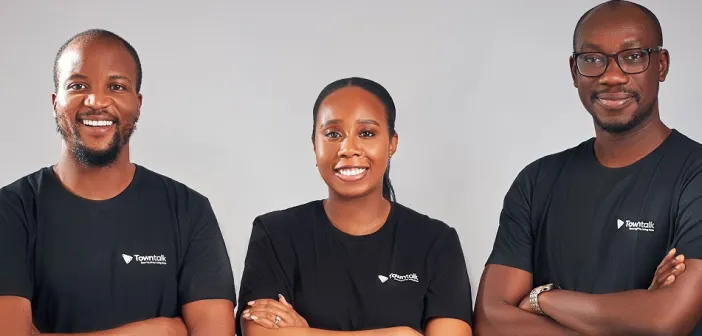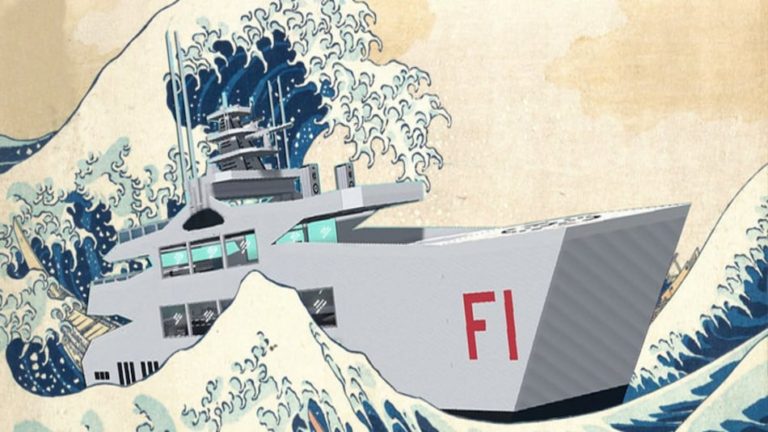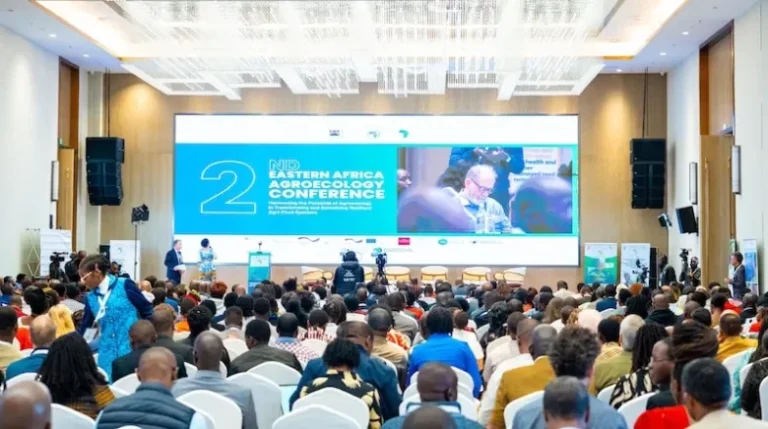How Nigeria’s Towntalk is creating a data infrastructure for risk reduction tools

Africa’s security, logistics, and agricultural firms may now choose from a variety of risk protection solutions thanks to a data infrastructure developed by Nigeria’s Towntalk that makes use of “hard to collect” location data and applies AI approaches.
Towntalk, a 2020 startup, has created a “data ecosystem” that has been strengthened by industry alliances with top security firms like Amarante International, a French security firm.
The startup was established to address the issue of lack of data on the continent, particularly the lack of location and behavioral data required to make effective risk-based decisions, such as with regard to security incidents, traffic, and road condition. Earlier this year, the startup was one of the 12 companies selected for the inaugural ARM Labs Lagos Techstars accelerator.
“Literally any data that affect both safety and mobility of individuals and goods,” said Folake Edun, Towntalk’s CEO.
“Our competitors are those companies using data on the continent to help facilitate better decision making, like Gro Intelligence or Pula, however the granularity and nature of our data means our competitors can leverage our data infrastructure to enrich their own solutions.”
The Towntalk team has extensive knowledge of the area. Before returning to Nigeria to work for Africa Finance Corporation and then Chapel Hill Denham, where its CTO and COO are also professionals in their fields, Edun spent six years working in risk management at Deloitte UK.
In 2020, the firm raised US$285,000 in a pre-seed round of funding from VCs and angel investors.
“Since then, however, we have taken advantage of our data infrastructure in business sales, using our data and technology to offer services in travel planning, security mapping, and asset monitoring – which has brought in more than US$700,000 to date. All of this is given back into the company to manage ongoing operations and assist with future technological development, according to Edun.
In order to help with creating a more sustainable revenue stream, we recently launched an insurance-related product into the market. This product was immediately picked up by two top insurance companies, who want to partner with us to deliver the solution. Our technology has been successfully used for enterprise sales, and we have organically generated substantial sales in this space. With the start of Goods in Transit for the Nigerian logistics sector, the solution enables our insurance partners to take advantage of our data infrastructure for more precise risk-based premium pricing and claims review.
Towntalk, which is based in Nigeria, currently gathers information from Mali, Burkina Faso, Ghana, Benin, Niger, and Togo, among other nations on the continent.
“To far, we have gathered over 320,000 data points on security incidents, traffic incidents, weather, road conditions, and more to power our solution. However, we remain faithful to data being at the heart of the firm and allow the data tell us where we got to next. Our platform is built for growth and expansion, and we want to do so across the continent,” said Edun.
With all of its institutional partners, including insurance companies and security firms, Towntalk uses a revenue-sharing approach.
“In exchange for a portion of the revenue from each solution sent through our platform, we provide our technology to our partners to enable them to use the data and insights to provide solutions to their clients,” Edun added.
The most difficult component of Towntalk’s job, according to her, is data collection.
“As noted, it is quite challenging to obtain this kind of information in this region of the world, especially security information. When accessed, it is also incredibly unstructured and frequently tainted with fake news, which has a negative effect on the data’s utility, according to Edun.
In order to ensure that our infrastructure is as strong as possible, we have invested a lot of time gathering data from various online and offline sources and forming partnerships with businesses that help our data ecosystem continue to expand, such as agreements with security firms.







